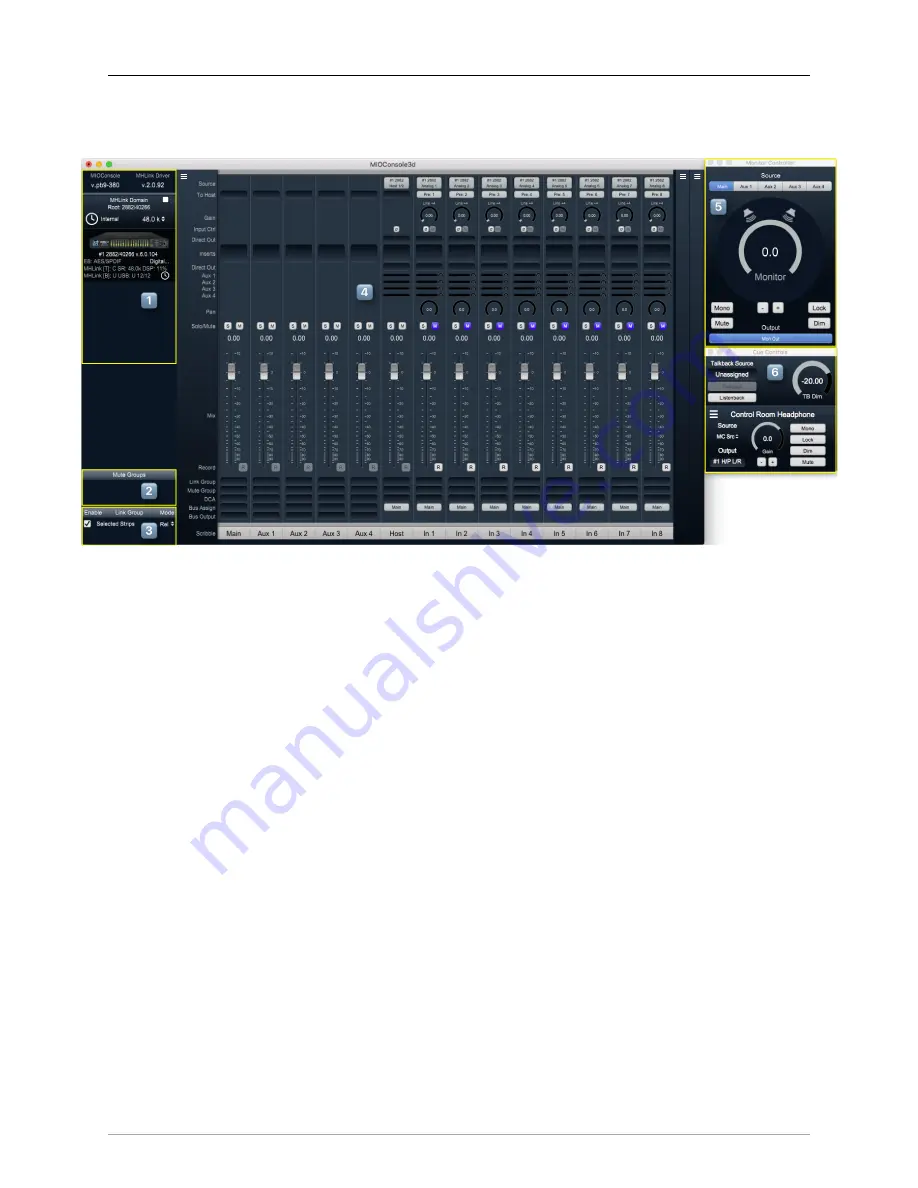
2882 Quick Start Guide
92
MIOConsole3d
Figure 4.3: MIOConsole3d 2882 default view
MIOConsole3d Default Window Layout
At first launch of MIOConsole3d with your 2882 you will be presented with the default layout shown above.
There are a few important things to look at here so let's take a few minutes to familiarize ourselves with
the interface/GUI.
First of all, if the Mixer window takes up too much room or appears too small on your screen, select
Mixer/Mixer UI Scale from the menu bar and adjust the visual scale of the mixer surface. Note that scaling
does not change the size of all of the Mixer strip elements - the fader/meters section remains elastic and
will shrink or stretch as other Mixer elements are resized, added or removed. Try selecting the 85% scale
setting so you can see what it does.
Now resize the Mixer window by grabbing the window corner (or any of the edges) so you can see how
the mixer elements react.
You can also change the width of mixer strips (wider strips are helpful to better see 8-channel surround
meters) and show or hide any mixer strip UI element. We will explore these features in more detail below.
As you have probably noticed as you check things out in the MIOConsole3d, most elements in the Mixer,
Monitor Controller and Cue Controls windows have mouse-over pop-up hints which display expanded
details for the button beneath.
The regular mixer surface button labels will often be abbreviated to save space, but the mouse-overs will
display all the details of each control setting. This is an especially important feature as you add more boxes
to your system domain.
1. In the upper left side of the main mixer window you see the System Status Pane.






























